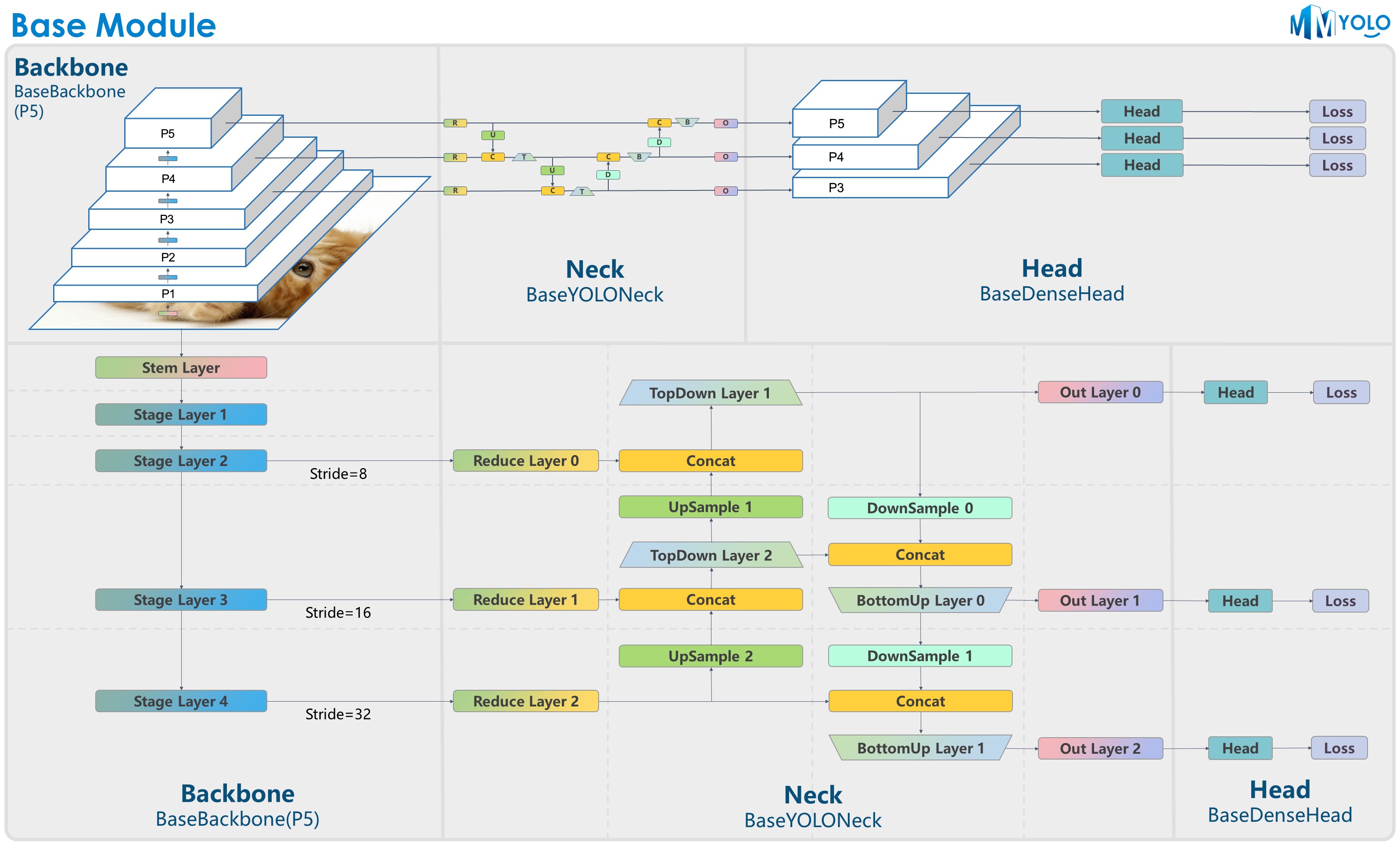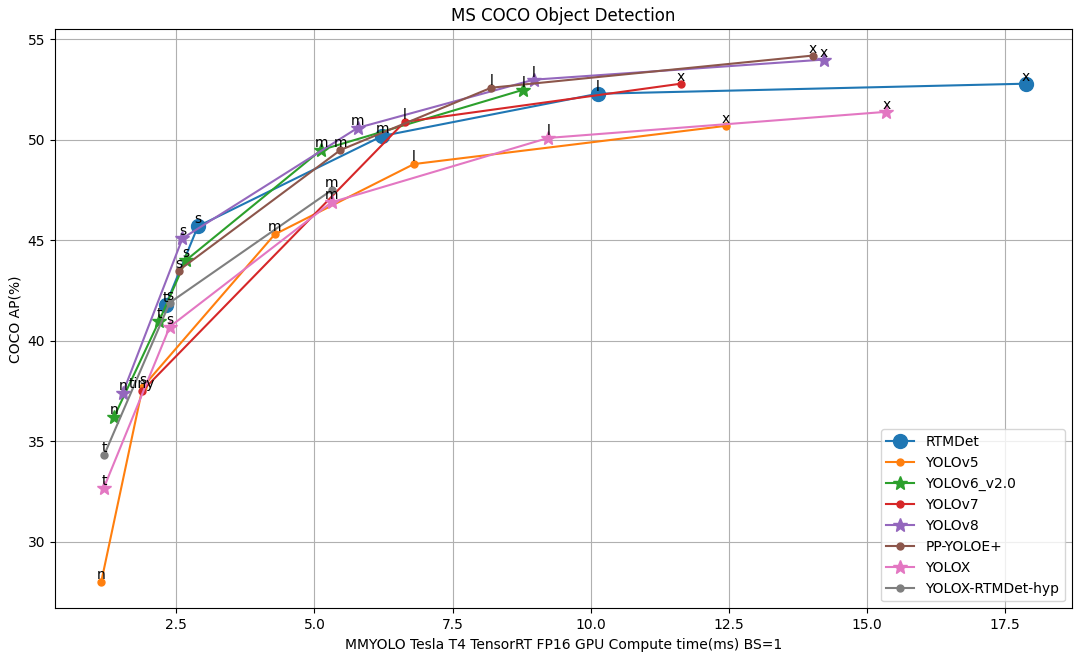
Security News
Fluent Assertions Faces Backlash After Abandoning Open Source Licensing
Fluent Assertions is facing backlash after dropping the Apache license for a commercial model, leaving users blindsided and questioning contributor rights.

📘Documentation | 🛠️Installation | 👀Model Zoo | 🆕Update News | 🤔Reporting Issues
English | 简体中文
💎 v0.6.0 was released on 15/8/2023:
For release history and update details, please refer to changelog.
We are excited to announce our latest work on real-time object recognition tasks, RTMDet, a family of fully convolutional single-stage detectors. RTMDet not only achieves the best parameter-accuracy trade-off on object detection from tiny to extra-large model sizes but also obtains new state-of-the-art performance on instance segmentation and rotated object detection tasks. Details can be found in the technical report. Pre-trained models are here.
| Task | Dataset | AP | FPS(TRT FP16 BS1 3090) |
|---|---|---|---|
| Object Detection | COCO | 52.8 | 322 |
| Instance Segmentation | COCO | 44.6 | 188 |
| Rotated Object Detection | DOTA | 78.9(single-scale)/81.3(multi-scale) | 121 |

MMYOLO currently implements the object detection and rotated object detection algorithm, but it has a significant training acceleration compared to the MMDeteciton version. The training speed is 2.6 times faster than the previous version.
MMYOLO is an open source toolbox for YOLO series algorithms based on PyTorch and MMDetection. It is a part of the OpenMMLab project.
The master branch works with PyTorch 1.6+.

🕹️ Unified and convenient benchmark
MMYOLO unifies the implementation of modules in various YOLO algorithms and provides a unified benchmark. Users can compare and analyze in a fair and convenient way.
📚 Rich and detailed documentation
MMYOLO provides rich documentation for getting started, model deployment, advanced usages, and algorithm analysis, making it easy for users at different levels to get started and make extensions quickly.
🧩 Modular Design
MMYOLO decomposes the framework into different components where users can easily customize a model by combining different modules with various training and testing strategies.
 The figure above is contributed by RangeKing@GitHub, thank you very much!
The figure above is contributed by RangeKing@GitHub, thank you very much!
And the figure of P6 model is in model_design.md.
MMYOLO relies on PyTorch, MMCV, MMEngine, and MMDetection. Below are quick steps for installation. Please refer to the Install Guide for more detailed instructions.
conda create -n mmyolo python=3.8 pytorch==1.10.1 torchvision==0.11.2 cudatoolkit=11.3 -c pytorch -y
conda activate mmyolo
pip install openmim
mim install "mmengine>=0.6.0"
mim install "mmcv>=2.0.0rc4,<2.1.0"
mim install "mmdet>=3.0.0,<4.0.0"
git clone https://github.com/open-mmlab/mmyolo.git
cd mmyolo
# Install albumentations
pip install -r requirements/albu.txt
# Install MMYOLO
mim install -v -e .
MMYOLO is based on MMDetection and adopts the same code structure and design approach. To get better use of this, please read MMDetection Overview for the first understanding of MMDetection.
The usage of MMYOLO is almost identical to MMDetection and all tutorials are straightforward to use, you can also learn about MMDetection User Guide and Advanced Guide.
For different parts from MMDetection, we have also prepared user guides and advanced guides, please read our documentation.

Results and models are available in the model zoo.
| Backbones | Necks | Loss | Common |
|
|
|
|
Please refer to the FAQ for frequently asked questions.
We appreciate all contributions to improving MMYOLO. Ongoing projects can be found in our GitHub Projects. Welcome community users to participate in these projects. Please refer to CONTRIBUTING.md for the contributing guideline.
MMYOLO is an open source project that is contributed by researchers and engineers from various colleges and companies. We appreciate all the contributors who implement their methods or add new features, as well as users who give valuable feedback. We wish that the toolbox and benchmark could serve the growing research community by providing a flexible toolkit to re-implement existing methods and develop their own new detectors.
If you find this project useful in your research, please consider citing:
@misc{mmyolo2022,
title={{MMYOLO: OpenMMLab YOLO} series toolbox and benchmark},
author={MMYOLO Contributors},
howpublished = {\url{https://github.com/open-mmlab/mmyolo}},
year={2022}
}
This project is released under the GPL 3.0 license.
FAQs
OpenMMLab Toolbox of YOLO
We found that mmyolo demonstrated a healthy version release cadence and project activity because the last version was released less than a year ago. It has 1 open source maintainer collaborating on the project.
Did you know?

Socket for GitHub automatically highlights issues in each pull request and monitors the health of all your open source dependencies. Discover the contents of your packages and block harmful activity before you install or update your dependencies.

Security News
Fluent Assertions is facing backlash after dropping the Apache license for a commercial model, leaving users blindsided and questioning contributor rights.

Research
Security News
Socket researchers uncover the risks of a malicious Python package targeting Discord developers.

Security News
The UK is proposing a bold ban on ransomware payments by public entities to disrupt cybercrime, protect critical services, and lead global cybersecurity efforts.